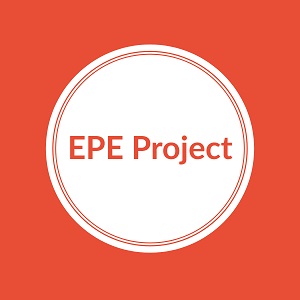Early pregnancy endings and the workplace
Content warning
Please proceed with caution if this research topic may be upsetting for you. There is a list of support organisations at the end of the page if you are affected by any of these experiences.
Description
 This project seeks to understand how women and other people who have been pregnant navigate the demands of work at the same time as experiencing termination or miscarriage (including ectopic and molar pregnancies) in pregnancy, up to 24 weeks.
This project seeks to understand how women and other people who have been pregnant navigate the demands of work at the same time as experiencing termination or miscarriage (including ectopic and molar pregnancies) in pregnancy, up to 24 weeks.
The project draws together a consortium of academics from the OU (Jo Brewis, Victoria Newton and Katy Schnitzler), Brunel University (Julie Davies), the University of Exeter (Aimee Middlemiss) and the University of Essex (Ilaria Boncori). We are generating evidence and sharing findings, towards seeking additional funding, with the ultimate objective of driving change in policy and practice. Our overarching aim is to improve organisational support for women who experience termination and/ or miscarriage via the provision of evidence-based guidance for line managers and HR professionals as well as resources for women themselves.
We have also published a journal article which analyses the way in which legislation on employment leave in England and Wales creates different categories of personhood for parents and the embryo or foetus and what the implications are of each of these categories.
Please also note that while we refer to ‘women’ as a shorthand to represent the majority group who experience early pregnancy endings, our project is intended to be fully gender-inclusive.
Our research questions are:
- What are the lived experiences of early pregnancy endings in the workplace before 24 weeks gestation?
- To what extent and how do women disclose early pregnancy endings at work?
- What are the factors that discourage women from disclosing at work?
- How do employers respond to early pregnancy endings?
- What are women’s experiences of workplace support after early pregnancy endings?
Survey
We ran a pilot survey during the first six months of 2022, which recruited women and other people from anywhere in the UK who had experienced an early pregnancy ending whilst in paid employment. This attracted 200+ respondents and forms the basis of our research report as outlined below.
Knowledge exchange events
We held two knowledge exchange events in May 2024 to report our research findings and recommendations from the survey and interview data from a sister project entitled Understanding the Experience of Miscarriage and Stillbirth in the Workplace projects. One was online and the other was in person at the University of Essex.
You can watch the recording of the online event here: Early pregnancy endings and the workplace knowledge exchange event - YouTube
Research report
We have finalised the research report, which includes our best practice recommendations for HR professionals and line managers, based on our survey and a sister project based on qualitative interviews. You can access the report here.
Infographics and slides
We have created the following resources which can be used to raise awareness of best practice around early pregnancy endings as a workplace issue. Please feel free to download and share for your own purposes.
- Best practice for support - dark background, portrait jpg
- Best practice for support - light background, portrait jpg
- Best practice for support - dark background, portrait png
- Best practice for support - dark background, landscape jpg
- Best practice for support - dark background, portrait pdf
- Best practice for support - light background, portrait pdf
- Best practice for support - dark background, portrait pdf with bleed
External communications
You can find out more about the background to our project In this Open Societal Challenges blog piece. We have also published an OpenLearn piece on the specific issue of abortion stigma as a workplace issue, and a piece in The Conversation which draws on our research to emphasise why employers need to take early pregnancy endings seriously. In December 2024, we submitted written evidence about bereavement leave to the Business and Trade Committee’s call relating to the Employment Rights Bill. You can find this evidence here (submission number ERB0024).
In August 2025, we also submitted to the Department for Business and Trade and the Department for Work and Pensions call for evidence in their review of parental leave provision. Our evidence can be found on Open Research Online (ORO).
Support organisations
The following organisations can provide advice and support for people who have experienced a pregnancy ending.
Funding
This project was funded by an Open University Impact Acceleration award until July 2022 and subsequently received funding from Open Societal Challenges at the OU for the academic year 2023 - 2024. The project is OSC 47. It was reviewed by, and received a favourable opinion, from The Open University Human Research Ethics Committee – HREC reference number: HREC/4201/Brewis.
